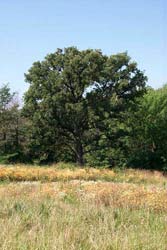
"Real knowledge has to be earned by hard and painful thinking . . .
Real knowledge is gained only by ceaseless questioning of yourself
and others . . ." -- John Taylor Gatto
 Environmental Science Major Environmental Science Major
The curriculum for the environmental science major has
recently been dramatically improved in order to accommodate the diverse
interests of environmental science majors and allow more flexibility in
choosing electives. Students choose from one of two tracks,
science or policy, depending on their interest and career aspirations. The two tracks share joint requirements
listed below, and additional requirements for each concentration.
Requirements for Both Concentrations
BIOL 150
Investigating Biological Concepts (Four credits.)
BIOL
155 Ecology, Evolution, and Diversity (Four credits.)
BIOL 307
Ecology (Four credits.)
CHEM 130 Organic Chemistry I (Four credits)
CHEM 140 General Chemistry (Four credits.)
ENVI 103 Introduction to
Environmental Science
(Three credits.)
ECON 200 Principles of Economics (Four credits.)
POLS 101 or POLS 103 or POLS 200 (Three
credits.)
Choose one of these three introductory courses.
SOCI 343
Sociology of Development (Three credits.)
Senior Research
From an approved department of choice (Three to four credits.)
Additional Science Concentration Requirements
BIOL 350 or CHEM 350
or PHYS 350 Science Seminar
(to be taken twice for a total of two credits)
CHEM 220/225 Analytical
Chemistry w/lab (Four credits)
ENVI 218 Applied Hydrogeology
(Four credits)
MATH 151 Calculus I
(Four credits)
MATH 207 Statistics for the
Sciences (Three credits)
BIOL 222
and 322 Introduction to Research I and II
(Recommended)
PHYS 130
Introduction to Physics I (4 credits)
(recommended before ENVI 218)
Additional Policy Concentration Requirements
ECON 380 Environmental Economics (Three credits)
POLS 375 Environmental Politics
(Three credits)
CATA 335 Argumentation
(Three credits)
MATH 106
Elementary Statistics (Four credits)
Electives:
Students with an interest in policy/advocacy are encouraged to consider
the following electives.
-
ECON 310
Regulation and Legislation
-
ECON 340 Economics and Law
-
ECON 370 Public Finance
-
POLS
311 Parties and Elections
-
RELG 206 Religious Perspectives on Moral Issues
-
CATA
233 Advanced Public Speaking
CATA 339 Persuasion
-
CATA
235 Small Group Communication
-
SOCI 102 Social Problems
-
SOCI 345
Social Inequality
-
PHIL 310 Environmental Ethics
Students with
an interest in science are encouraged to consider the following electives.
-
BIOL
201 Field Botany
-
BIOL
315 Field Zoology
-
CHEM 230 Organic Chemistry II
-
MATH 152 Calculus II
-
PHYS 130 Introductory Physics I
-
PHYS 132
Introductory Physics II
-
BIOL 222
and 322
Introduction to Research I
and II
ENVI 103. Introduction to
Environmental Science
The course is an introduction to the scope, magnitude, and diversity of environmental issues
approached by scientists and policy-makers. An interdisciplinary approach to solving
environmental problems is emphasized by providing a scientific, social, and political
understanding of the issues. Laboratory sessions include field trips to study human impacts on
our environment and group projects and discussion aimed at critical analysis of current
environmental topics. (Three credits)
ENVI 218. Applied Hydrogeology
An applied approach to the analysis of the hydrologic cycle with an emphasis on the
physical properties, transport, use and contamination of surface water and groundwater.
Includes laboratory and field experiences. Prerequisite: MATH 141, or consent of instructor.
(Four credits.)

|
